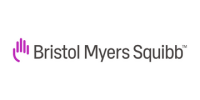
Bristol Myers Squibb Company
NEWS
On the FDA’s docket this month are two decisions pushed back from 2025, including one for a rare form of obesity and another for dry eye disease.
The BioSpace team hit the ground running at the J.P. Morgan Healthcare Conference earlier this month to bring you the news from the streets of San Francisco.
Pfizer, Eli Lilly, Novartis, Bristol Myers Squibb and AstraZeneca are all ramping up the use of AI, but drug discovery is not the primary success story—yet.
Bristol Myers Squibb delivered better than expected fourth quarter earnings, but Eliquis missed expectations while Cobenfy continues to struggle with uptake.
Cellares, which last year became the first company to receive the FDA’s new advanced manufacturing technology designation, expects to support clinical production this year and offer commercial-scale manufacturing services in 2027.
Bristol Myers Squibb, GSK and Merck are contributing drug ingredients as part of their deals with the White House but are keeping many of the terms of their agreements private.
The partnership will allow BMS to advance a T cell–based therapy that is only activated once in the vicinity of a tumor.
AbbVie and Novartis strike billion-dollar pacts while attendees at the J.P. Morgan Healthcare Conference await that one big M&A deal and Merck teases limitless buying capacity; Eli Lilly readies for potential orforglipron launch while Novo Nordisk laments compounders; the IPO window cracks open; and the FDA concludes that GLP-1s do not pose a suicide risk.
Mature biopharma deals are stealing all the headlines, but Bristol Myers Squibb’s Robert Plenge says the company’s deals with insitro, Orbital and more are building the future.
JOBS
IN THE PRESS












